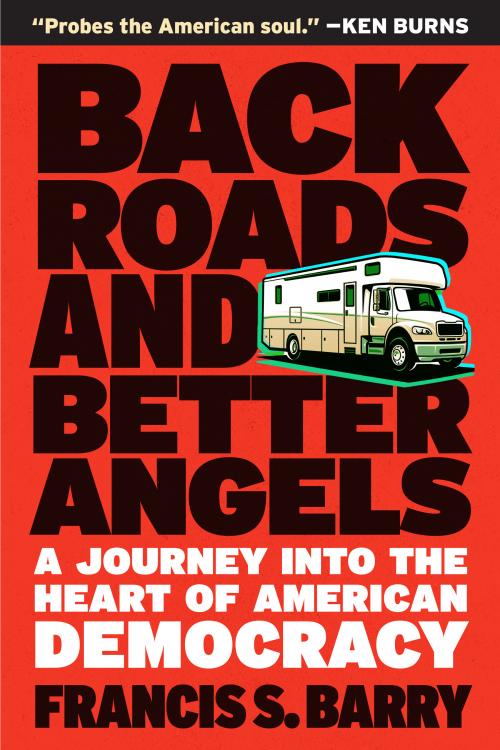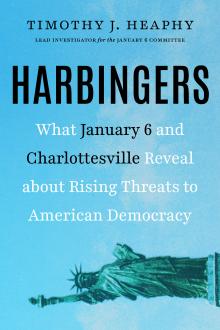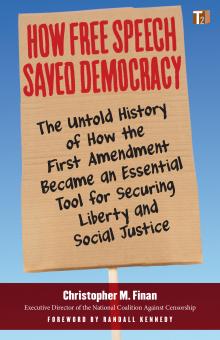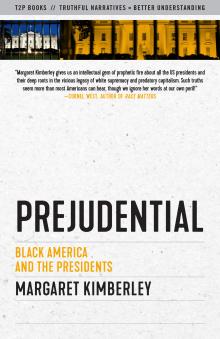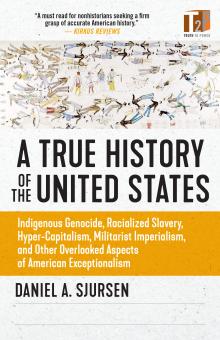Excerpt
Prelude
No, we’re not going to Yellowstone.
That was the reply Laurel and I gave to the most frequent first question friends and family asked when they heard of our plan — a year into marriage and six months into a pandemic lockdown — to drive a motorhome across the country. They always seemed taken aback by our answer, as though we were traveling Egypt but passing on the pyramids, or crossing China without walking the Great Wall, or touring Ireland without having a pint at a pub. Who would dare? Snubbing Old Faithful on a road trip west — and through Wyoming, no less?
National parks occupy a sacred place in the American heart, and road trips have an unrivaled hold on the American imagination. The liberating pull of our open roads inspires romantic visions of the nation in its most idyllic form. When parents take the family wagon for a cross-country vacation, or kids cannonball like Kerouac and Cassady across the land, or retirees take the trip they’ve long dreamed about, national parks shape the itinerary and interstate highways speed the way. I had another kind of journey in mind.
The idea of driving the old Lincoln Highway — the nation’s first transcontinental route, running from New York City to San Francisco — came to me in January 2016, when America seemed to be coming apart in ways I had never seen, as Donald Trump’s presidential candidacy enthralled conservatives, enraged liberals, and sent both into delirium. After the election, Republicans rejoiced while many Democrats chanted “Not my president!” and spoke of impeachment even before his inauguration. In the months and years that followed, resentments deepened and passions burned hotter, each side increasingly unable to abide the other, with references to the Civil War growing more frequent.
On the left, a continual state of shock and disbelief mixed with fear and loathing — fear of what lay ahead for the country and loathing for what the Republican party had become: a toxic brew of intolerance, incompetence, ignorance, corruption, criminality, cowardice, racism, misogynism, and nativism, all debasing America’s standing in the world and defiling our constitutional values. The left stopped using the word deplorable, but many never stopped thinking it. Yet with every new outrage there was hope that Trump had finally gone too far, only to see it forgotten within days or even hours, displaced by the next scandal more outrageous than the last, with the process repeating itself in an infuriating and exhausting loop.
On the right, a continual state of defiance and grievance mixed with fear and loathing — fear of what lay ahead for the country and loathing for what the Democratic party had become: a toxic brew of elitism, socialism, and atheism, hostile to traditional family values, unconcerned with working people, overrun by political correctness, captive to gender and racial ideologies, blind to government dependence, hateful of American heroes, intolerant of dissent, disdainful of rural communities, and steeped in arrogance. No one had ever given voice to it all like Trump and his no-holds-barred brashness and braggadocio, which won him deep loyalty and admiration among many Republicans. The enemies he made and the battles he fought inspired a sense of hope on the right that what had been lost — factories, family farms, coal mines, traditional mores, the Protestant work ethic, the good ol’ days however defined — could be regained.
As the pandemic stretched into the summer of 2020, and the passions aroused by the presidential election burned hotter, I realized that it was now or never for driving the Lincoln Highway. To avoid the need for hotels, I began researching RVs, which I knew almost nothing about. I’d ridden in one only once, at the end of senior year in college. About ten of us rented a motorhome to drive to the Kentucky Derby, and we broke down about halfway. The dealer agreed to deliver a replacement vehicle in a few hours, which turned into half the night. We didn’t mind, since someone had the foresight to bring along a keg of beer. We didn’t sleep and pulled into Churchill Downs at daybreak, not needing mint juleps but having them anyway and taking in the bacchanalia of the infield. This, it turns out, was not an accurate representation of RV life, except for the part about waiting on repairs.
After consulting with friends who had recently rented motorhomes, I zeroed in on the largest one I wanted to drive and the smallest one I wanted to live in: a twenty-five-foot Winnebago Navion with a full bed, toilet, shower, sink, stove, oven, dinette table, and even two televisions, plus a sleeping loft over the cab. Dealerships were sold out, listings were light, and long-term rentals were quite expensive — I was far from the only one to have the idea of RVing to escape the lockdown. But an online ad had just posted for a 2017 model with thirty thousand miles. I put in an inquiry without mentioning it to Laurel, who had scoffed at the whole idea of the trip. “Frank, there’s a pandemic happening!” When she begins a sentence with my name, it usually means the matter is settled. But one of the many reasons I fell in love with her is her sense of adventure and openness to ideas of mine that fall somewhere between half-baked and harebrained.
The Winnebago’s owner, Kim, replied the next morning. As we traded emails, I tried showing Laurel the listing, but she waved it off as ridiculous. Eventually, over dinner and a bottle of wine, with Taylor Swift’s just-released Folklore playing, she agreed to look. It helped that when I initially raised the idea of the trip, I had proposed doing it a van. The Winnebago was bigger than she had expected — about 150 square feet, the same size as Henry Thoreau’s cabin at Walden Pond. If he could use a tiny cabin in the woods to “drive life into a corner,” surely we could use a tiny cabin on wheels to drive life out of the corner Covid had put us into. I confessed to Laurel that I’d been emailing with the owner. She wasn’t fazed.
I spoke with Kim the next morning to go over some additional questions, and she delivered the message I’d been fearing: She already had a buyer. Since I was her first inquiry, she would sell it to me, but the price was non-negotiable and she needed a decision. Today.
Uh-oh.
As daily subway riders, neither Laurel nor I had ever bought a car. Were we really going to make our first motor vehicle purchase a Winnebago? The process was moving faster than I had expected. I hadn’t even yet pitched my boss at Bloomberg News on the idea of taking the trip and writing a weekly column about it. I was putting the cart before the horse, and it was not an inexpensive cart. But the price was reasonable, and unless we wrecked it, it would hold most of its resale value.
I asked Laurel: What do you think? She didn’t hesitate: “Let’s do it!” I asked if she wanted to see the listing again, to be sure. “No. Just do it!” I asked again: Are you positive? “Frank, let’s buy an RV!” She’s the decisive one. It usually takes me a long time to make a major decision — we dated for eight years before I finally proposed — but with the world collapsing around us, it was easier to let go. I called Kim and told her: We’ll take it.
#
Many people are not big on surprises, Laurel included. So before I go further, I should say a word about what, and what not, to expect in the pages ahead.
First, this is not another book about Trump, but like so much of American life now, he hovers around it. Nor is it a book to explain Republican voters to befuddled Democrats, a mission that liberal writers have spent two decades attempting with little success. In What’s the Matter with Kansas, a bestseller published during the 2004 election, Thomas Frank looked back on his home state and painted its voting majority as suckers who fail to understand what’s best for them, continually bamboozled by Republican candidates who sell them on cultural conservatism and then sell them out to Big Business. During the 2016 election, Democrats turned to J. D. Vance’s memoir about his Appalachian roots, Hillbilly Elegy, but his attempt to particularize the Appalachian mindset mostly reminded me of how much of it is shared by Americans of all regions and races.
The book was another example of our national predilection for elevating and magnifying differences, while ignoring and downplaying commonalities. Nevertheless, liberals swooned over Vance, until he ran for an Ohio Senate seat in 2022 as a Republican, whereupon his conciliatory tone turned combative and his disdain for Trump turned into fawning admiration — “kissing my ass” was how Trump put it — while Democrats reversed the other way, heaping contempt on him and the book they had once admired.
More books will be written to help coastal and urban readers understand middle and rural America, loaded with data and academic studies, but this is not one of them. Nor is it a collection of personal insights gleaned from familial connections to the heartland. Nearly all my extended family lives on the coasts. I do have one cousin in Cleveland, but he’s estranged for reasons I don’t entirely understand and that are not spoken of in our Irish-American family, leaving me only with vague recollections of whispers from long ago that conveyed more sadness than information. Since I am hardly able to explain my own family, and the cousin in Cleveland isn’t the half of it, I won’t be trying to explain anyone else’s. Attempting to explain the American family is a doomed mission best left to novelists and poets. There is at least beauty in their failures.
My aim in writing this book is simpler: to invite you along with Laurel and me on a cross-country journey, in the hope that — by listening to people we meet along the way, digging into the landscape to uncover what it conceals, and remembering some of the domestic battles Americans have fought — we might view the country’s challenges a little less rigidly, our fellow citizens a little more empathetically, our common history a little more clearly, our national resilience a little more appreciatively, our common inheritance a little more reverently, and our civic responsibilities a little more soberly. Cynics and partisans will dismiss the whole exercise as naive. I disagree. Our best hope in pursuing the Constitution’s aim of “domestic tranquility” lies not in combing through research as sleuths, but simply in listening more, judging less, and recognizing more of ourselves in one another — including the notion that conflicting views of what it means to be American is part of what it means to be American. “What is American history,” wrote Steven B. Smith in Reclaiming Patriotism in an Age of Extremes, “but a series of debates over the meaning of our national identity.”
We are not, of course, the first people to take the road in search of answers. Cross-country travel has inspired a uniquely American genre of literature that explores the character of the country and the distances that separate it from its ideals. We are traveling in that tradition and will draw upon it for inspiration, but to guide the journey, we will track the same North Star that led the nation through our darkest hour: Abraham Lincoln, whose martyrdom has transcended our parties, a fate the poet Richard Henry Stoddard anticipated in his 1865 elegy:
One of the People! Born to be
Their curious epitome;
To share yet rise above
Their shifting hate and love.
We will hear from other American poets along the way, and since this is a road trip, we’ll listen to music — American music in all its forms: rock, country, pop, punk, soul, jazz, blues, bluegrass, folk, hip-hop, Latin, all of them part of our shared heritage. (Listen along on streaming services via @fsbarry.) Song’s unifying cultural force is why Lincoln, in his first inaugural address, declared that “the mystic chords of memory…will yet swell the chorus of the Union, when again touched, as surely they will be, by the better angels of our nature.” We’re going looking for those better angels and listening for those mystic chords, in the hope of beginning to swell a chorus that has been drowned out by an earsplitting cacophony of anger and rage.
We could have no better guide than Lincoln, but we are not out to deify him. He was flawed and fallible, like all of us — and judged by modern standards, he was an abhorrent racist and sexist. Yet in looking unflinchingly at him, we can see paths that lead to greater understanding and a more perfect union. The alternative is deeply unsettling; as Gettysburg University professor Kent Gramm has written: “If we Americans can’t find Lincoln, we are lost.” Or worse. When the two major parties do not respect each other, when each views the other as an enemy that threatens the existence of the country, when each stridently condemns the other in moral terms and judges the other unfit for power, the prospect of a major breakdown in democratic governance — and the eruption of violence — should not be taken lightly.
Staving off such a nightmare begins, I believe, with considering both the tensions that have pulled the country apart since its inception, and the elastic bands that have held us together. By doing so, it is my hope that we can better see the value of what I’d call patriotic pragmatism. A patriotic pragmatist is not so righteous as to reject compromise, not so modern as to damn all historical figures, not so defensive as to whitewash terrible wrongs, not so reckless as to tolerate political violence, not so feverish as to conflate party with deity, and not so blind as to fail to see through another’s eyes. Patriotic pragmatists, guided by the three fundamental values of the Declaration of Independence and Constitution — freedom, equality, and democracy — may well determine whether the American people will, in Lincoln’s phrase, “nobly save, or meanly lose, the last best hope of earth.”
#
It’s never wise to take a long road trip with an untrustworthy person, and trust begins with openness and transparency. So a quick word about my political background.
I’m a lifelong Democrat, but in my twenties I went to work for New York City’s Republican mayor, Michael Bloomberg, which instantly made me a person of suspicion among some of my liberal friends. No matter that Bloomberg had only recently joined the Republican party to run for mayor because he had no hope of winning the Democratic mayoral primary, or that he had hired an administration full of Democrats, or that he was pro-choice, pro-gay-rights, pro-immigrant, pro-gun-safety, and anti-death-penalty. He had signed on to the party of George W. Bush and Dick Cheney, and for some, no virtue could ever redeem that sin, though his decision to leave the party in 2007 to become an independent seemed to help.
Over twelve years in city hall, I learned an enormous amount about government and politics and watched both parties engage in fights that had little to do with principle and everything to do with power. I wrote a book about one of those battles, over a proposal to replace closed party primaries with an open primary system, which both parties opposed. The one thing they agreed on was keeping independent voters shut out of the electoral process. That experience, and writing speeches for a mayor who didn’t give a damn about party politics and was never afraid to buck both party lines, shaped my political outlook. When Bloomberg entered the Democratic presidential primary in 2020, I joined the campaign. Early each morning, I rode the subway to campaign headquarters in Times Square, exiting onto 42nd Street and the start of the Lincoln Highway, which served as a daily reminder for me of the campaign’s core message: bringing the country back together.
So while I’m a Democrat, I’ve always taken to heart a truth spoken by John F. Kennedy: “Sometimes party loyalty asks too much.” I will endeavor to be evenhanded on this trip, and I hope you will endeavor to be open-minded. When you read something you disagree with — and you will — stick with me. And know that Laurel is probably empathizing with you.
#
My bosses at Bloomberg gave me the green light to go out on the road, and Kim agreed to drive the Winnebago halfway to New York from her home in Florida. I left Manhattan at dawn in a one-way rental car and met her in the late afternoon in Fayetteville, North Carolina. After some paperwork and an orientation that I barely understood and quickly forgot, I got into the driver’s seat and wondered if I had bitten off too much. I intended to stop for the night in Virginia, but once moving I dreaded the prospect of hitting morning traffic around Washington and Baltimore, so I decided to press on. After picking up Bojangles chicken and biscuits and a large Dr Pepper, I ran on nervous energy, gripping tight the wheel, testing the stereo’s maximum volume, and driving through the night. What I wouldn’t have given to be lounging in the back with friends and a keg.
Finally, after thirty straight hours on the road, I arrive at our family house in upstate New York, stepped out of the cab, and kissed the ground — triumphant, exhausted, and apologetic, as Laurel rightly asked how I could do something so stupid. Her exasperation quickly gave way to excitement as she stepped inside the Winnebago, when it finally hit her: It’s really happening!
We were RV people now. And the country was calling.

